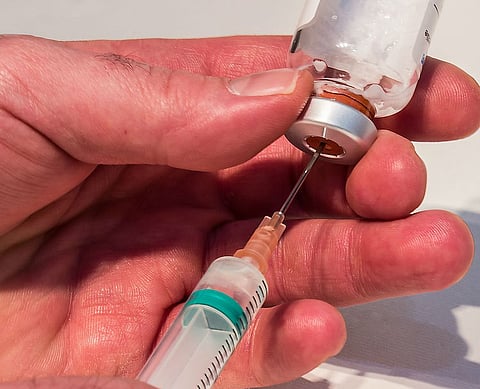

Earlier in September, news broke that a contaminated batch of polio vaccines had been administered to children in several states, including Telangana and Uttar Pradesh. While authorities had earlier re-assured the public to not panic, investigations were conducted into the alleged contamination. The investigation has found that one of the providers of the raw materials for the vaccine, Indonesia-based Bio Farma, has been given a clean chit.
It was alleged that a batch of oral polio vaccines, manufactured by Ghaziabad-based Bio-Med, was contaminated with an older strain of the virus (strain II), which had been eradicated in 2014, according to the World Health Organisation (WHO). An investigation into the manufacturer and the contamination case required officials to identify a potential source of the eradicated strain.
As part of this, a four-person team was sent to Indonesia’s PT Bio Farma Private Limited, which supplies raw material to Bio-Med for bulk production of the vaccine. These investigations, however, showed that Bio Farma products have no trace of contamination, bringing Biomed back into the spotlight.
Despite repeated attempts by TNM, the Ministry of Health could not be contacted.
What was the contamination issue?
Biomed is one of the few companies in the country that was cleared to manufacture the oral polio vaccines to meet the government’s campaign against polio. The Indian vaccine manufacturers were told to get rid of the stock of older vaccine forms after a WHO recommendation to switch to bivalent vaccines.
However, the alleged contamination was thought to have occurred because the Ghaziabad company, which did not destroy the stock of older, trivalent vaccines. A random testing of samples indicated that a little over 1 lakh vials were contaminated with strain 2.
Though it isn’t known how the contamination occurred, it was reported that a random sample of the oral polio vaccines, tested by officials between September 12 and 14, showed evidence of adulteration.
India’s Polio-free status
India was officially declared a ‘polio-free’ country in March 2014, so why are polio vaccines still being given?
“Poliomyelitis or polio is a disease caused by one of three strains of the poliovirus. PV1, PV2 and PV3. The vaccine is developed with these strains,” explained pediatrician Dr Rakesh K from Chennai. “These vaccines can be attenuated, oral polio vaccines (OPV), which are made with a weakened form of the virus, or it can be the inactivated polio vaccines (IPV), which are developed using killed or ‘inactivated’ forms of the virus,” he added.
He further explained that India’s campaign against polio began in 1978 with the Expanded Programme on Immunisation (EPI), which targeted the aggressive onset of polio in children. It was altered to what the immunisation schedule is today. Through the EPI and the Pulse Polio Campaign, which was later introduced around 1995, India slowly fought polio and was eventually given the ‘polio-free’ status in 2014 after the three-year observation period following the last case reported in 2011.
After strain 2 of the virus was eradicated globally, the WHO recommended that future polio vaccines no longer need to contain that particular strain and recommended that hospitals administer bivalent polio vaccines, which only contained the remaining two strains of the virus.